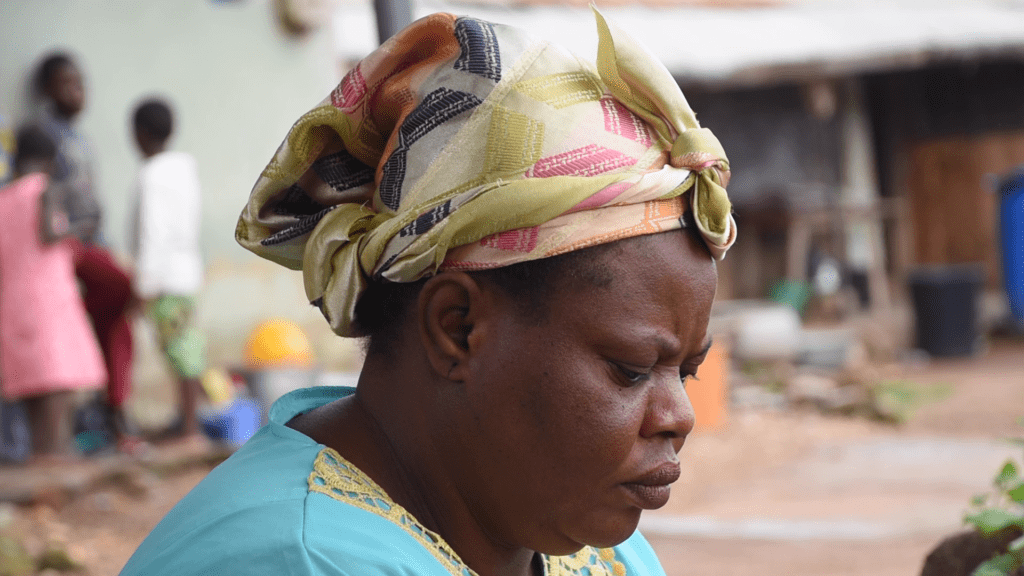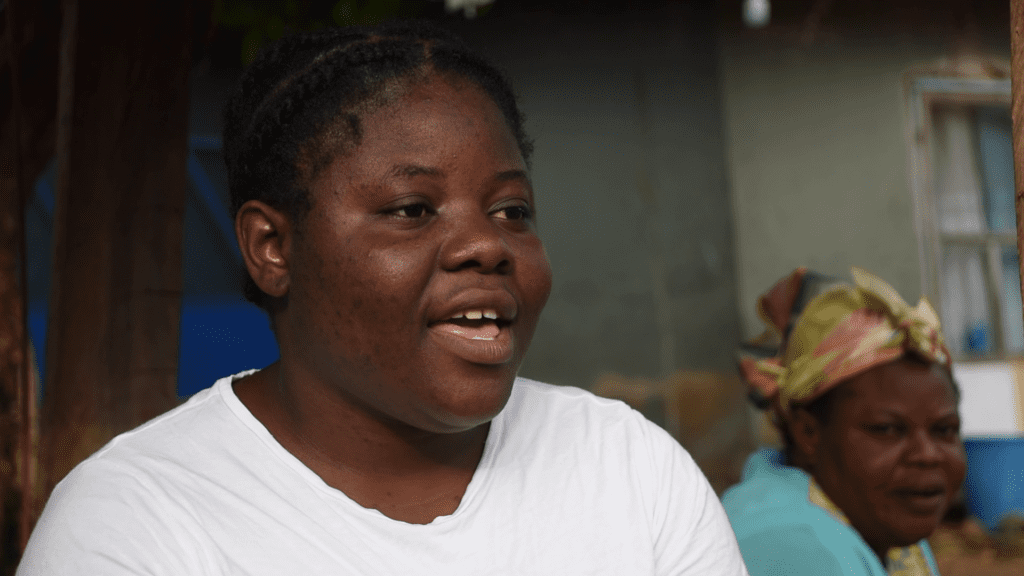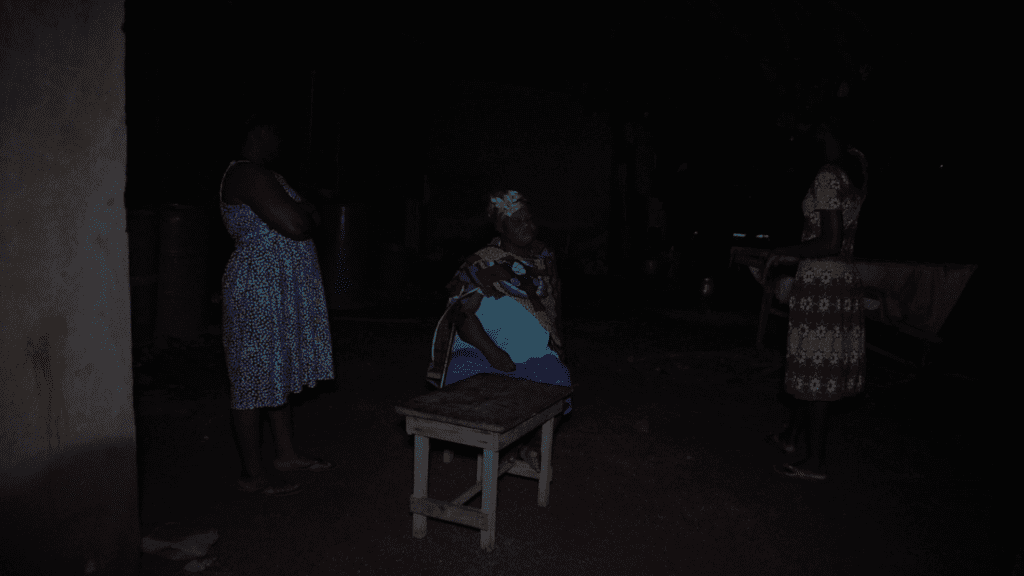It's sunset here in Nkwanta, the Nkwanta South Municipal capital in the Oti Region.
A 44-year-old petty trader sits few meters away from her table shop preparing dinner, yam slice with fried fish stew.
The physically challenged trader and her household are bearing the brunt of the ravaging effects of the coronavirus on their livelihoods over the last year.
Mary Bediaku, paralysed in both legs, indicated that she lost her ¢6,000 capital of her clothing business due to the closure of Ghana’s land borders as part of restrictions to curtail the spread of the coronavirus.
Mary was born a healthy child with no disability.
However, she suffered a heavy fall and fractured her right leg at a tender age, which was the beginning of her disability.
She thus got paralysed at the lower body, hence became bedridden.
She was operated on at the Korle-bu Teaching Hospital at 15 years, after which Plaster of Paris (PoP) was fitted to her leg.
“I was enrolled in training as a beautician by my parents when we returned to Nkwanta after the PoP was removed and callipers were fitted to aid my mobility together with clutches”, she said.

“However, I stop using the callipers and clutches a few years later, after a deliverance session at a prayer camp in Nkwanta. To my surprise, I got paralysed again after another fall some years later”, she added.
Mary then gave up and decided to cope with the situation and acquired a walking stick to aid her walk.
Nonetheless, her condition did not deter her from engaging in trading activities.
Mary ventured into selling clothing until the closure of the Ghana-Togo border due to the coronavirus pandemic.
She detailed that she “could buy clothing worth ¢6,000 in Lome-Togo, which I sell at various market centres in the enclave. However, the commodities then became expensive, and I was compelled to resort to another trade when the government decreed the closure of Ghana’s land borders.”
Unfortunately, the new trade could not sustain her, and her living condition kept worsening by the day.
She struggles to put food on the table of her seven-member family, including her husband, who got paralysed too, through a motor accident.
"I use returns from the petty trade to finance the upkeep of the family. But, unfortunately, I have run into debts, and my capital has gone down the drain. It has been not easy taking care of the family.
"My husband got paralysed about one and a half years ago. I have been responsible for the welfare of the family all this while,” Mary lamented.

The development has affected the education of her children.
Her eldest child, Joyce, cannot continue her education after completing senior high school two years ago.
"life has become hard for us due to the emergence of the coronavirus. I bought an application form to enrol in skill training, but my attempts to get help to raise money for the training yielded no result”, Mary Bediako narrated.
Due to Mary’s predicament, she and her household are unable to pay electricity bills.
Her household has since been disconnected for owing ¢630, which has accumulated over the last year.
She explained that “previously, we were able to pay the electricity bills, but we can't do that now because life has become challenging for us.
“What to feed on is even a problem. So we are pleading with the government to come to our aid,” she appealed.

Mary is, therefore, requesting all and sundry for support to enable her children to further their education or engage in skill training warrant a better future.
She is in dire need of a new calliper and crutches or a wheelchair to enable her to move around with ease.
She is also appealing for seed capital to continue her clothing retailing business when the Ghana-Togo border is finally opened.
This feature story was facilitated by VOICE Ghana, a disability rights, advocacy and capacity building NGO based in Ho, Volta Region, with funding from the Open Society Initiative for West African (OSIWA).
Latest Stories
-
Alan promises to amend the Constitution to limit presidential powers
1 min -
Ghana to face liquidity pressures in 2025, 2026 despite restructuring most of its debt – Fitch
4 mins -
NPP’s record of delivering on promises is unmatched – Bawumia
5 mins -
Mahama: It’s time to dismiss the incompetent NPP government
7 mins -
Today’s front pages: Monday, November 25, 2024
21 mins -
T-bill auction: Government misses target again; interest rates continue to rise
23 mins -
We have a bad technical team; Otto Addo and his team should go – Ernest Thompson
2 hours -
Hindsight: Why Accra Lions’ present problems do not define them
2 hours -
10-year-old Lisa Laryea arrives at Wits Donald Gordon Hospital in South Africa for bone marrow transplant
2 hours -
23 ambassadors inducted to take on 2025 GSTEP Challenge in three regions
3 hours -
Ghana Shea Workers Union inaugurated
3 hours -
Microsoft 365 under attack – how to bulletproof your business against cyber threats
3 hours -
I trust Bawumia; he has never lied to me – Akufo-Addo
3 hours -
Bawumia is hardworking; offers the youth platform to share ideas – Kow Essuman
3 hours -
IGP, Police commanders worship with churches in Ghana as part of security arrangements for 2024 elections
3 hours

